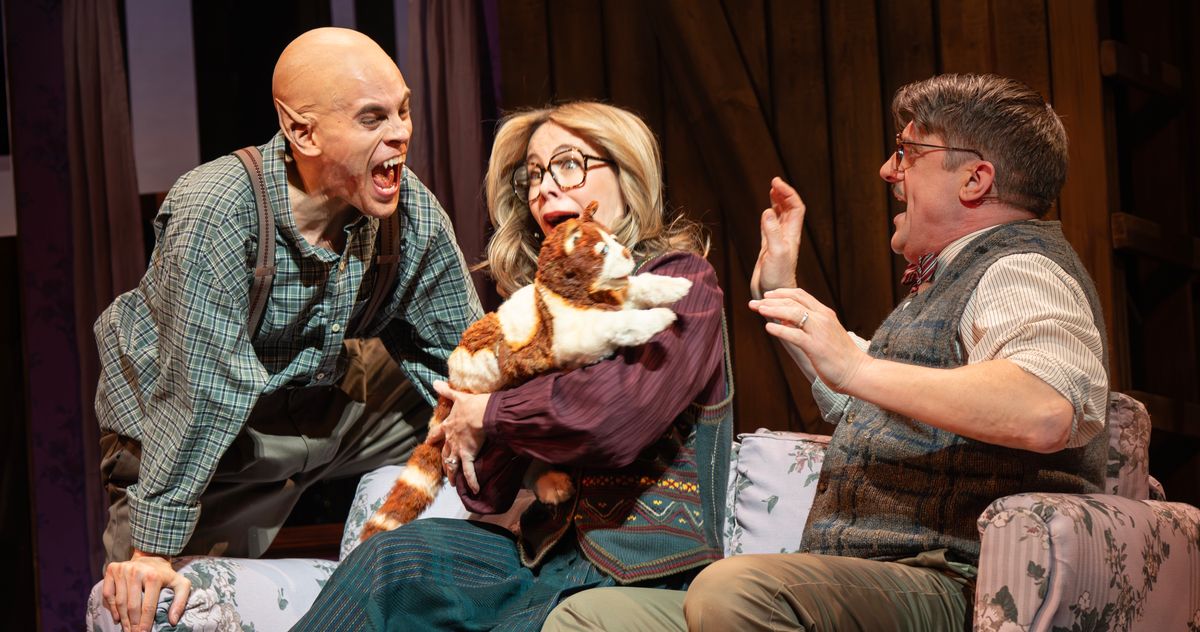
"They get him to pronounce the names of farm animals, move onto flash cards with important proper nouns like "Champs-Élysées" and "Great White Way." He adopts a BBC-ready accent-he's been watching a lot of Masterpiece Theater-but still stumbles through until his father takes him aside and feeds him the blood of a rabbit. Suddenly everything clicks: "I think I've got it!""
"He screams, launching into one of the songwriter Laurence O'Keefe's more inspired bits of condensed wordplay: "Brooklyn Bridge, Lenin's Tomb, Watergate, Rainbow Room!" The names go on and on, a gleeful send-up of what was, at the time of its premiere in 1997, the peak of sophistication. (On the original cast recording, Bat Boy is aware of both Fargo and Remains of the Day; now, he's up to date on Britney and Lord of the Rings.)"
"O'Keefe and his fellow creators Keythe Farley and Brian Flemming spend a lot of energy dressing up a concept based on a farcical tabloid cover with classic-musical tropes like small-town small-mindness, star-crossed lovers, and a big gospel number, then undercutting them with messy, gory contradictions that defy the pat hopefulness of a lot of the genre. A "Do You Feel the Love Tonight"-esque forest fantasia in Act Two, for instance, ends with Bat Boy's love interest offering him a sip from a vein."
Bat Boy opens with a West Virginian veterinarian family raising a half-human, half-bat, attempting to civilize him through pronunciation drills and flash cards. He adopts a BBC-ready accent after watching Masterpiece Theater, but comprehension snaps into place only after his father feeds him rabbit blood, triggering an ecstatic burst of rapid cultural name-dropping. Songwriter Laurence O'Keefe's lyrics stack condensed wordplay into manic lists. The show dresses up a tabloid-inspired concept with classic musical tropes—small-town prejudice, star-crossed romance, big gospel—and then undercuts them with graphic, gory contradictions. A romantic fantasy ends with a lover offering Bat Boy a sip from a vein. The show's sophomoric glee established a cult Off-Broadway following and enduring popularity in amateur and educational theatre.
Read at Vulture
Unable to calculate read time
Collection
[
|
...
]